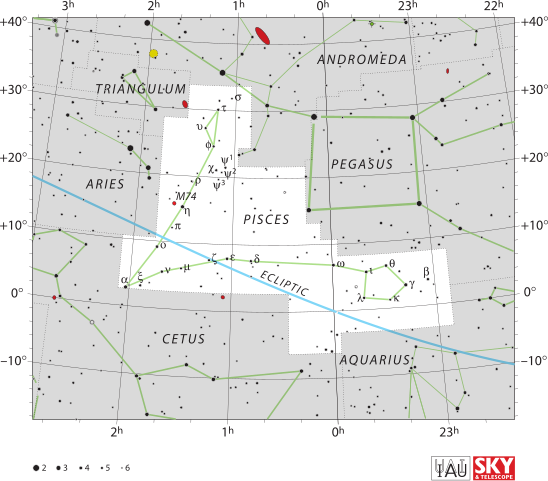- Star Tales - Pisces (ianridpath.com)
The mythological events concerning this constellation are said to have taken place around the Euphrates river, a strong indication that the Greeks inherited this constellation from the Babylonians. The story follows an early episode in Greek mythology, in which the gods of Olympus had defeated the Titans and the Giants in a power struggle. Mother Earth, also known as Gaia, had another nasty surprise in store for the gods. She coupled with Tartarus, the lowest region of the Underworld where Zeus had imprisoned the Titans, and from this unlikely union came Typhon, the most awful monster the world had ever seen
passage through the ecliptic
- Pisces (constellation) (Wikipedia)
Pisces is a constellation of the zodiac. Its vast bulk – and main asterism viewed in most European cultures per Greco-Roman antiquity as a distant pair of fishes connected by one cord each that join at an apex – are in the Northern celestial hemisphere. Its old astronomical symbol is Pisces symbol (♓︎). Its name is Latin for “fishes”. It is between Aquarius, of similar size, to the southwest and Aries, which is smaller, to the east. The ecliptic and the celestial equator intersect within this constellation and in Virgo. This means the sun passes directly overhead of the equator, on average, at approximately this point in the sky, at the March equinox.
